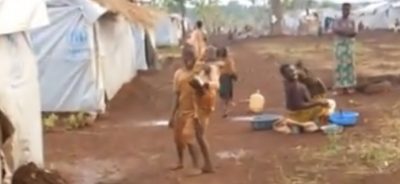Refugees from Burundi and DRC face a bleak future in Tanzania: Factors are complex
Noriko Watanabe and Lee Jay Walker
Modern Tokyo Times

The government of Tanzania is intent on keeping refugees and local people from interacting to any major extent. In total, more than 350,000 refugees from Burundi and the Democratic Republic of Congo (DRC) reside in camps in Western Tanzania. However, these camps are creating tensions based on the provisions provided and the conditions that are being stipulated by the government of Tanzania.
Burundi is gripped by political tensions and other negative factors. Similarly, ethnic, political, and religious issues beset the Democratic Republic of Congo (DRC). Hence, many nationals from Burundi and the DRC have fled to Western Tanzania. Despite this, while fleeing many problems in their respective countries, it is abundantly clear that the camps are inadequate.
Of course, refugee camps in countless nations are equally unfit or fail based on a plethora of factors. In this sense, life in countless refugee camps all over the world is a real problem because of countless negative factors that blight this world. Therefore, for Tanzania, the issue is complex because this nation feels unfairly treated when it comes to international support.
Indeed, it must be stated that Tanzania welcomed refugees from countless nations that fled from ethnic, political, and religious tensions in the past. Hence, many from Burundi, the DRC, Rwanda, and other nations, found fresh hope in Tanzania. However, times are changing because Tanzania now feels betrayed by the international community.
James Milner, an Associate Professor at Carleton University, stipulated, “Tanzania has long felt that it has not been fully supported by the donor community in its response to refugee-hosting, which has historically been generous… This narrative of Tanzania being abandoned, of Tanzania not receiving, of donors not delivering on the promises they made to Tanzania, is very important, and a very powerful narrative.”
In terms of economics, it is clear that the government of Tanzania does have a point. For example, by the early 2018, the UNHCR had hoped to receive just short of $120 million in economic aid to help refugees in Tanzania. Instead, only five percent of the hopeful funds had been received by this date. Therefore, the government of Tanzania is correct in becoming disillusioned by the United Nations and international donors.
John Magufuli, the President of Tanzania, also disputes the current “alleged” crisis in Burundi. He said, “It’s not that I am expelling Burundian refugees. I am just advising them to voluntarily return home… I urge Burundians to remain in their country, I have been assured, the place is now calm.”
Refugees in Nyarugusu, Nduta, and Kogoma face restrictions on leaving these refugee camps. At the same time, issues related to food and educational materials are sighted strongly. However, the nuance of events in Burundi to issues involving the lack of economic support from the international community – along with internal issues related to the rights and conditions of local people near refugee camps – means that “the voice” of the government of Tanzania must be heard. After all, while sympathy exists toward genuine refugees from Burundi and the DRC, it is equally true that sympathy belongs to the government of Tanzania for being treated so shoddily.

Modern Tokyo News is part of the Modern Tokyo Times group
DONATIONS to SUPPORT MODERN TOKYO TIMES – please pay PayPal and DONATE to sawakoart@gmail.com
http://moderntokyotimes.com Modern Tokyo Times – International News and Japan News
http://sawakoart.com – Sawako Utsumi personal website and Modern Tokyo Times artist
https://moderntokyonews.com Modern Tokyo News – Tokyo News and International News
http://global-security-news.com Global Security News – Geopolitics and Terrorism
PLEASE JOIN ON TWITTER
https://twitter.com/MTT_News Modern Tokyo Times
PLEASE JOIN ON FACEBOOK